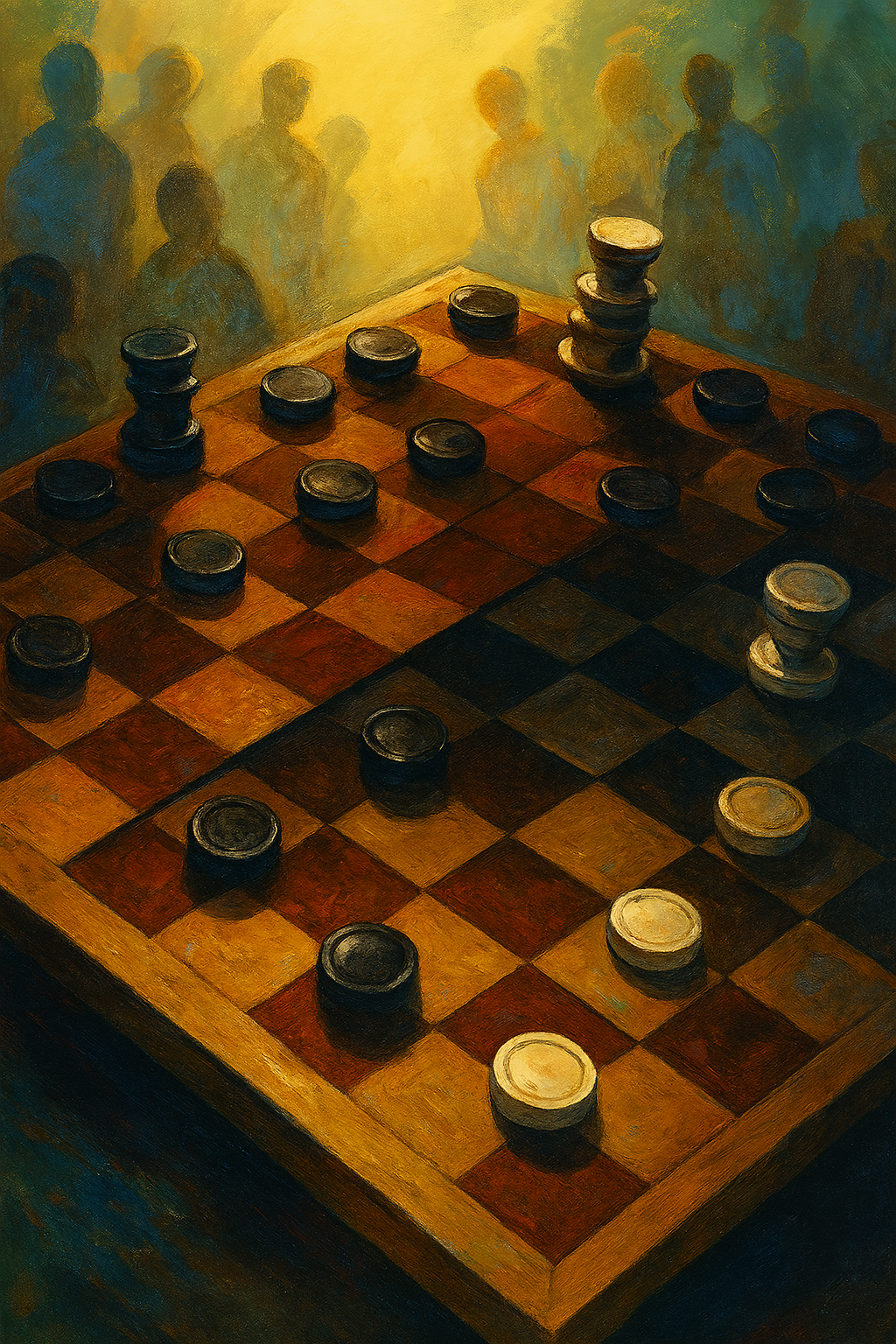Let’s unpack political democracy vs. economic democracy through the metaphor of checkers — a game simple on the surface, but rich in symbolism when viewed as a model of power, movement, and equality.
🟥 Political Democracy: Equal Moves, Unequal Boards
In political democracy, every player begins with equal moves — each citizen gets a vote, a voice, a say in who commands the board.
The rules are clear, codified, and supposedly fair.
But as in checkers, starting position matters.
Everyone begins with the same number of pieces, yet not the same vantage point. One side always moves first. One color always starts on defense.
Political democracy is about the right to move, not necessarily the freedom to win.
The system promises equality of participation, not equality of outcome.
Even when every checker can in theory become a “king,” the path there depends on positioning, opportunity, and who gets blocked first.
So while political democracy ensures you’re on the board —
it doesn’t guarantee that your pieces won’t get trapped by a better-funded, better-placed opponent.
💰 Economic Democracy: The Power to Move Freely
Economic democracy extends the metaphor.
It asks: Who actually controls the board?
In a purely political democracy, everyone votes on who should make the rules —
but in an economic democracy, everyone has a stake in how the game is played and how the rewards are shared.
Imagine if, in checkers, each player had a say in how the rules evolved mid-game —
how captures are made, how kings are crowned, how pieces resurrect after loss.
That’s economic democracy:
not just the right to move, but the right to shape the rules of motion.
Where political democracy elects the referee,
economic democracy builds the board.
⚖️ The Metaphor Deepens: Crowning and Control
When a piece reaches the other side and becomes a king, it suddenly gains more movement — it can move both ways.
In society, these are the financially liberated,
the ones who have transcended the one-directional grind of surviving paycheck to paycheck.
Political democracy says:
“You too can move forward if you try hard enough.”
Economic democracy says:
“Let’s question why only the few ever reach the far side.”
Because if every piece could be crowned by design —
if the economy itself distributed movement, ownership, and opportunity more fairly —
then the game wouldn’t just be fair in rules, but in rhythm.
🧠 Philosophical Reflection
Checkers teaches us that fair rules don’t always make a fair game.
Political democracy gives you the illusion of balance —
every player equal before the law.
Economic democracy asks for the substance of balance —
every player empowered within the system.
One is about votes.
The other is about value.
And as long as the board stays tilted toward those who already have kings,
we can play fair and still lose beautifully.
🔹 Summary
| Aspect | Political Democracy | Economic Democracy |
|---|---|---|
| Focus | Equal political rights | Equal economic power |
| Symbol in Checkers | Every piece has a move | Every piece can shape the rules |
| Metaphor | Voting for the referee | Co-owning the board |
| Freedom Type | Formal (legal, procedural) | Material (real, lived) |
| Limitation | Equal voice ≠ equal outcome | Requires redistributing opportunity |
“Political democracy elects the referee. Economic democracy builds the board.”

Leave a Reply